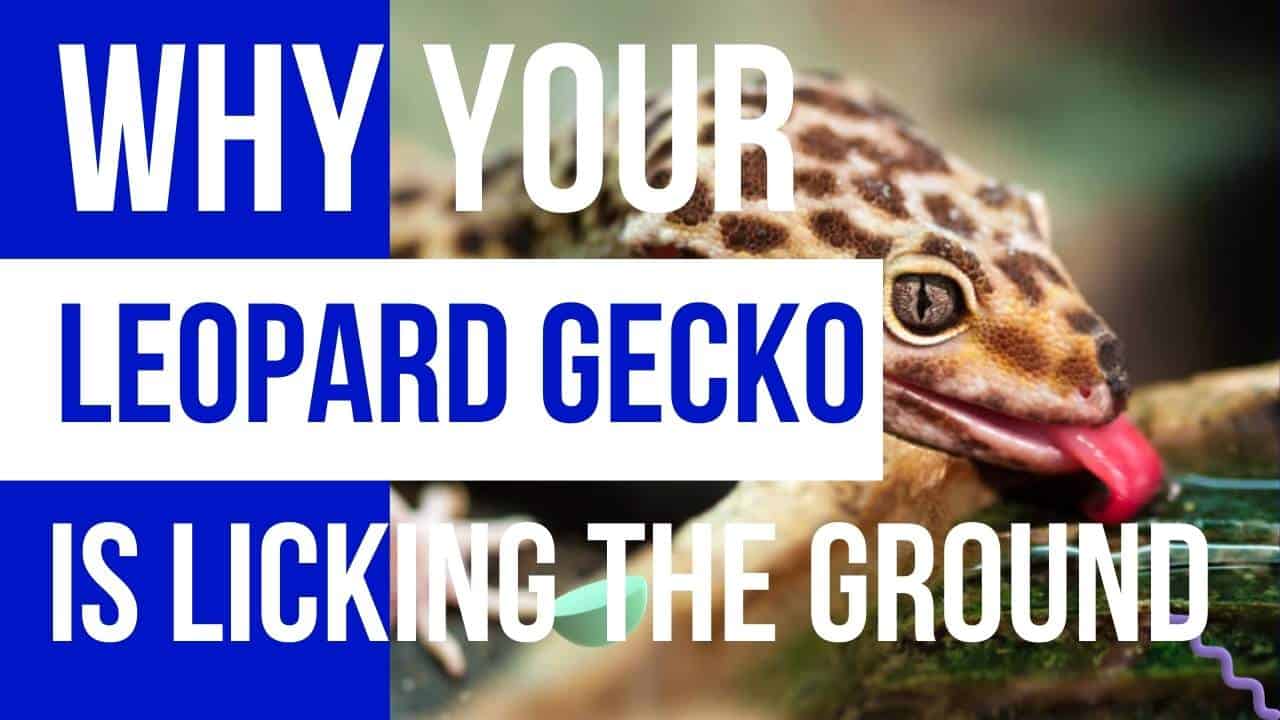If your pet is licking the ground, they may be examining a new environment. This could result from a weak jaw or a Jacobson’s Organ. A leopard gecko could also be experiencing stress and examining the new tank decor or people. Below are some signs to watch out for. Read on to discover what could be going on in your gecko’s life.

Symptoms of a weak jaw
You may notice your gecko licking its mouth more than usual. If you have noticed this behavior, your gecko may have a weak jaw. This disease is not contagious and can be corrected now, but it may result in permanent deformities if left untreated. If you have this problem, your gecko should be quarantined, but you can try resolving it now.
This condition can be attributed to a number of different causes, but one of the most common is intestinal blockage. Your gecko might end up with a blockage, causing severe digestive issues and even toe amputation.
A calcium-based substrate is also dangerous for your gecko. Ground walnut shells, which are sometimes sold as “desert sand,” are a particularly bad choice. These are sharp and can cause impaction and gastrointestinal inflammation.
Symptoms of a Jacobson’s Organ
The olfactory organ of reptiles, especially leopard geckos, is called the Jacobson’s organ. This organ is located on the tongue, and the lizard uses this organ to detect airborne and moisture-borne particles.
The tongue is split at the tip and is pushed back into the mouth after gathering particles. This action pushes the tongue against the Jacobson’s organ, which is the reason it is sometimes called the vomeronasal organ.
To confirm if the iridophoroma was the cause of the symptoms, X-rays and ultrasonography were performed. The lesions were identified in the dermis and epidermis and were filled with guanine crystals. Fortunately, all of the geckos involved in this study were healthy and had appropriate weight.
Signs of stress in a leopard gecko
Leopard geckos are generally hardy creatures that can tolerate a wide range of conditions. However, like all animals, they can experience stress. Signs that a leopard gecko is stressed include decreased appetite, shedding problems, and behavioral changes such as increased aggression or hiding.
Key causes of stress in leopard geckos include poor housing conditions, such as an inadequate enclosure size or lack of hiding places; handling by humans; and the presence of other animals in the same room. By understanding the signs and causes of stress, you can help to keep your leopard gecko healthy and happy.
In addition, although geckos are solitary animals, two or more females can cohabitate and live in the same tank. If you notice that your gecko is not eating, try giving it food gradually. Once it is used to eating, your pet will start to bond with you. It might not eat the big feeder insects. However, make sure they don’t exceed the size of its eyeballs.
Signs of ileus (gut stasis)
Ileus (gut stasis) is a wasting syndrome in the leopard gecko. This condition prevents the animal from growing and losing weight and is accompanied by signs of anorexia and lethargy. The abdominal region is also darkened and bloated. Ultrasonography can be useful in detecting ileus in leopard geckos, but it is not necessary to use UVB light to diagnose ileus.
If your gecko is experiencing abdominal distension, the culprit may be something else. Infection, fecal impaction, egg bind, and trauma are common causes. Physical examination by an experienced reptile veterinarian is necessary to make a diagnosis.
If your gecko has recently started urinating solid urine at night, eats normally, and poops normally, the cause of abdominal distension may be a parasite. While a small parasite level is normal for a leopard gecko’s gut flora, a parasite can cause a number of problems, including diarrhea, weight loss, and anorexia.
Conclusion
There are many potential causes of your leopard gecko licking the ground. Some causes, such as ileus and stress, are more serious than others. However, all of these conditions can be resolved with proper treatment. If you are concerned about your leopard gecko’s health, be sure to take it to a reptile veterinarian for a check-up.



